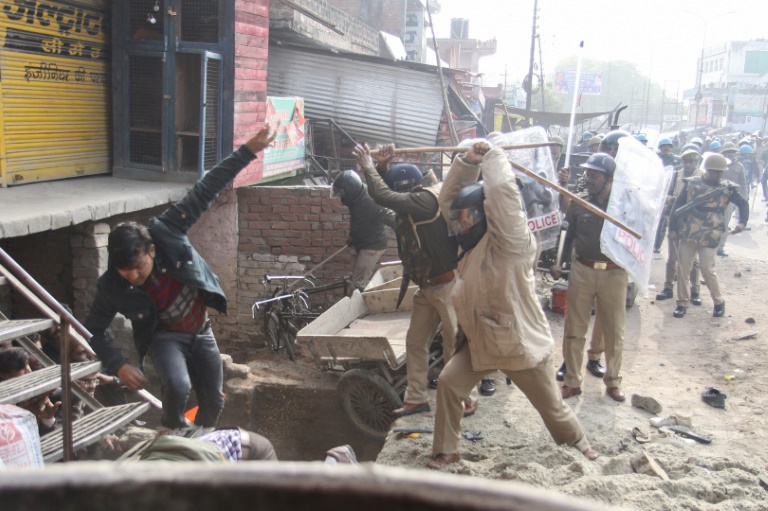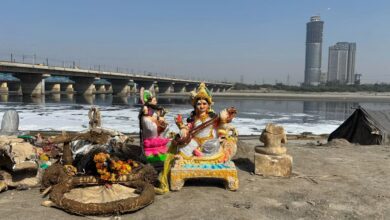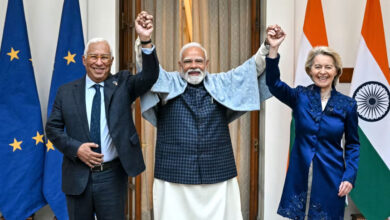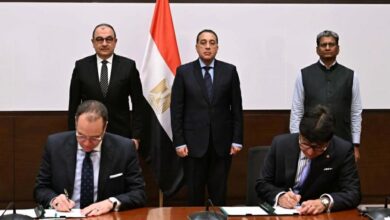
Fresh clashes between Indian police and demonstrators erupted on Friday after more than a week of deadly unrest triggered by a citizenship law seen as anti-Muslim.
Three protesters were shot dead on Thursday, taking the death toll to nine in the wave of anger that is emerging as a major challenge to Prime Minister Narendra Modi.
The law making it easier for persecuted minorities from three neighboring countries to get citizenship but not if they are Muslims, has stoked fears that Modi wants to remold India as a Hindu nation, which he denies.
Tens of thousands on Thursday hit the streets nationwide, with violence erupting in several places including Lucknow in the north, Mangalore in the south, and Modi’s home state of Gujarat.
In Mangalore, security forces opened fire on a crowd of around 200 people after they ignored orders to disperse, killing two people, police spokesman Qadir Shah told AFP. Four others were in hospital with gunshot wounds.
“They marched towards the busiest area of Mangalaru. This led to lathi (big, wooden sticks) charge. Then the tear gas was fired. When the protestors still didn’t stop, the police had to open fire,” he said, using an alternate name for the city.
Another protester succumbed to gunshot injuries in Lucknow, the capital of India’s most populous state Uttar Pradesh, said a doctor who did not want to be named, with vehicles and a police post set on fire in one district.
Police denied opening fire in the city, which is home to a large Muslim minority, but his father told the Times of India his son was shot after getting caught in a crowd of protesters while out to buy groceries.
Fresh clashes erupted in Lucknow on Friday when police halted a few hundred people on their way to a planned protest, with security forces firing tear gas and charging with batons, an AFP reporter at the scene said.
Elsewhere, there were no major incidents although police bundled hundreds of people onto buses in Delhi and Bangalore after they defied bans on assembly including a prominent rights activist and an internationally renowned historian.
Emergency laws
The protests have in places seen demonstrators hurl rocks at security forces and set fire to vehicles, while alleged police brutality — including at a Delhi university on Sunday — has fueled the anger.
The authorities have scrambled to contain the situation, imposing emergency laws, blocking internet access, and shutting down shops and restaurants in sensitive pockets across the country.
In Uttar Pradesh — home to over 200 million people — mobile internet and text messaging services were cut in several areas including in Ghaziabad, which neighbors Delhi.
Mobile phone services were also briefly suspended Thursday in parts of Delhi, and access in parts of northeast India — where the wave of protests began — was only restored on Friday.
In a strongly worded editorial, the Indian Express Friday said the government must do all it can “to keep the peace” in the country, home to 200 million Muslims.
“But in doing so the world’s largest democracy cannot look like it cannot accommodate its young who disagree, it cannot afford to signal that it is so ill at ease with itself.
“India risks a lot if it begins to be seen as a place where the dissenter’s mind is not without fear.”
Reporting by AFP
Image: AFP / STR




